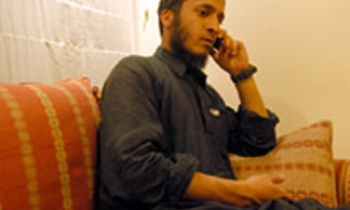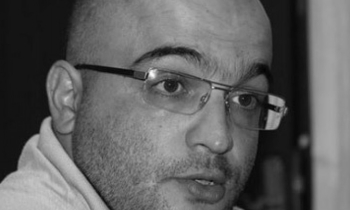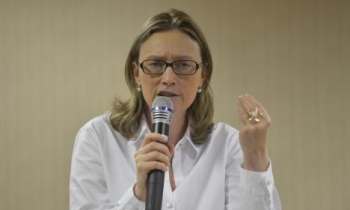In response to reports that the journalism profession in America, and particularly in academia, failed to help Jewish journalists during the Holocaust, the Newspaper Association of America is trying to make amends.
It issued a statement last week regretting that its predecessor organization did not give a full public airing to the issue at the time. The association's board has also agreed to hear presentations on the subject before its annual convention in April in Chicago.
In 1939, Prof. Carl J. Friedrich, a non-Jewish German refugee and Harvard government professor, had sought to address the American Newspaper Publishers Association, the precursor of the newspaper association, for 10 minutes about the plight of Jewish journalists who were seeking safe haven from Nazi persecution. But the association turned him down.
John F. Sturm, president of the newspaper association, said in a statement issued Friday: "We regret that the A.N.P.A. did not give Professor Friedrich the opportunity to speak to its 1939 convention, particularly since newspapers have played a crucial role in telling stories of the oppressed, and providing a voice to those whose stories would not otherwise be told."
Last year, Laurel Leff, an associate professor of journalism at Northeastern University, produced new research documenting the scope of failure among American journalism schools and newspapers to provide safe haven for those persecuted by the Nazis. The David S. Wyman Institute for Holocaust Studies, where Ms. Leff is a member of the academic council, petitioned the newspaper association last month and asked that Ms. Leff be allowed to address this year's convention.
The petition, signed by 80 prominent journalists, also asked for the association to acknowledge that its predecessor organization "was wrong to turn its back on Jewish refugee journalists fleeing Hitler." While the association's statement confines itself to regretting that Professor Freiderich was not allowed to speak, a spokesman for the petition said he was satisfied with it.
"We were not asking for an apology," said Laurence Zuckerman, a former New York Times reporter who helped organize the petition. "We were asking that the N.A.A. publicly acknowledge that the A.N.P.A. was wrong to turn its back on Jewish refugee journalists fleeing Hitler. Sturm's letter does that."
He called the response "extremely gracious," adding, "They faced up to the history and acted admirably."
Ms. Leff has been invited to address the association's board, which is meeting April 1, before the opening of the convention the next day. She has been given 10 minutes.
In addition, the association learned that one of Professor Friedrich's children is living in Chicago, and has invited him to address the board. Paul Friedrich, 78, is an anthropologist, linguist and poet who teaches a course in great books at the University of Chicago.
Also, the association's chairman, Jim Smith, plans to discuss the issue with the full convention on April 3.
The subject seems to have stirred interest across the journalism profession. Rafael Medoff, director of the Wyman Institute, said that as a result of the petition, journalism faculties at the Universities of North Carolina, Georgia, Wisconsin and Montana had told him they were now researching how their schools responded to the plight of German Jewish refugee journalists. In addition, he said, the S.I. Newhouse School of Public Communications at Syracuse University had invited Ms. Leff to speak about the matter.









